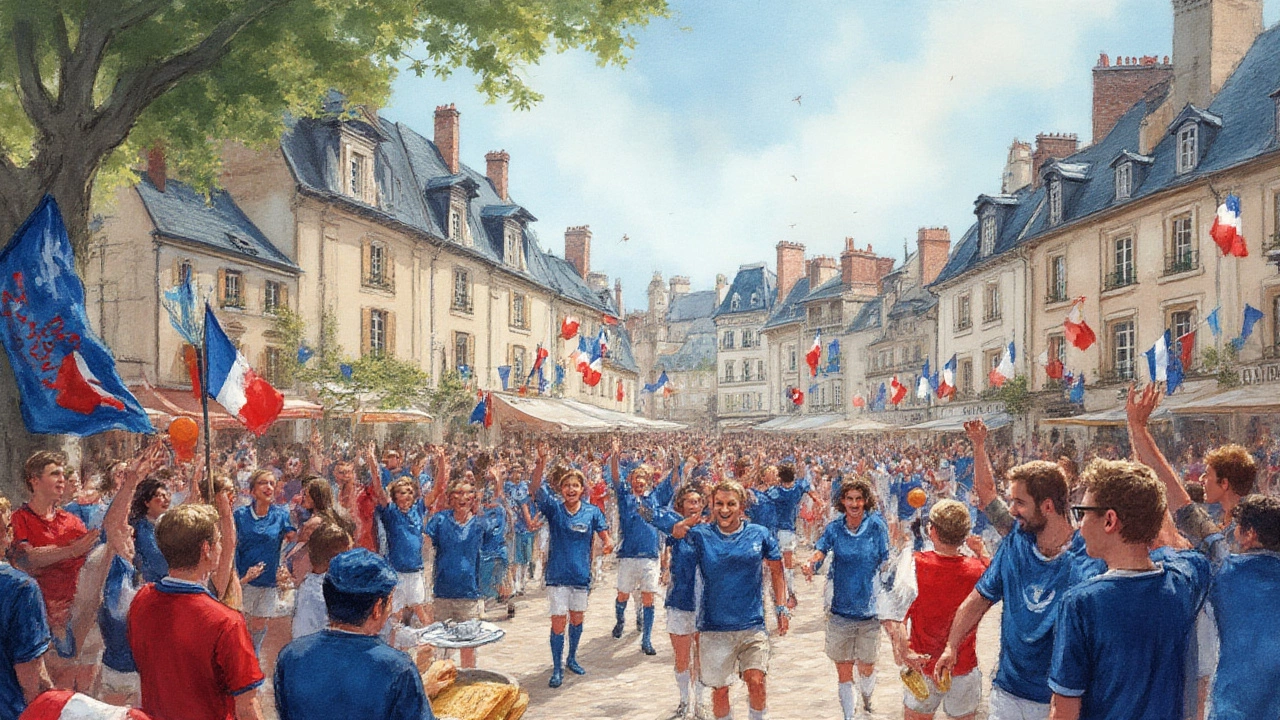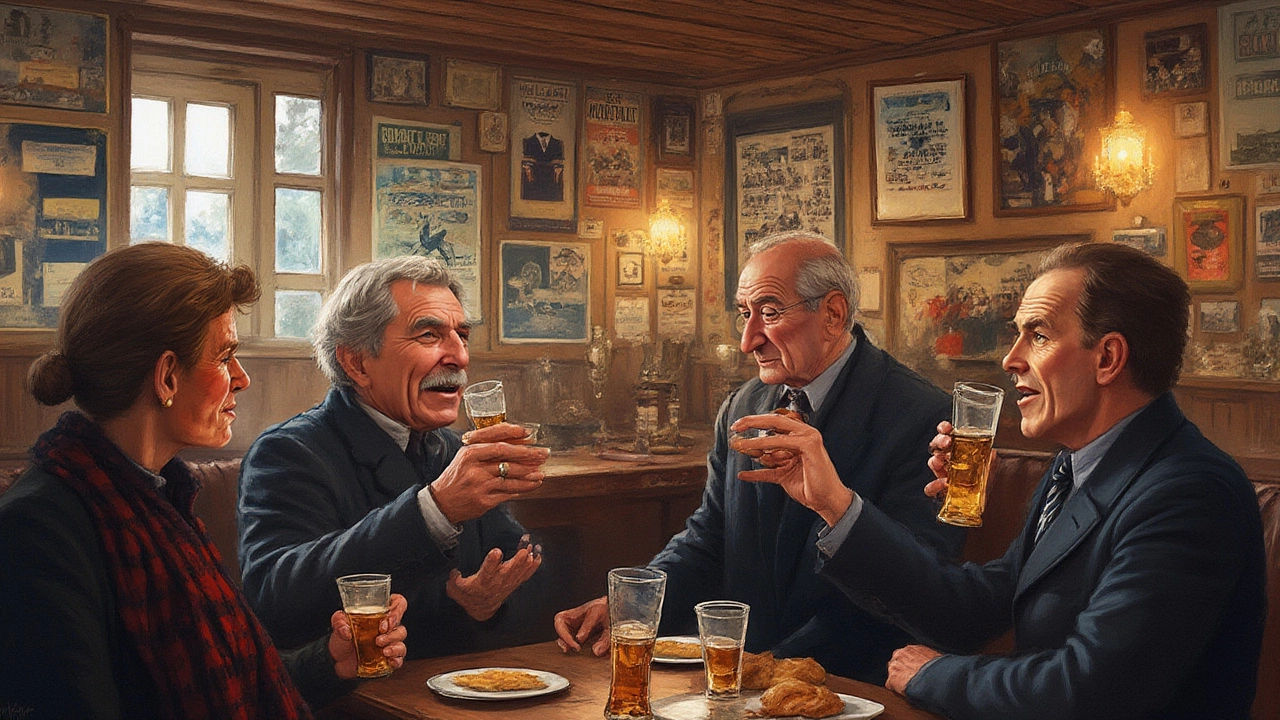What Do the French Call Rugby? Language, Culture, and the Heart of French Rugby

If you pop into a corner café in Toulouse or chill at a Paris brasserie during the Six Nations, you’ll probably hear the same word buzzing from TVs and passionate chats: "rugby." The French love the game, and, just like so many things in French life, their word for it is elegantly simple—no wild twists or mysterious phrases. But, as with everything French, there’s a deeper story. The way France has woven rugby into its language, culture, and daily talk says a lot about the nation’s spirit, its love for tradition, and its willingness to bend rules just enough to make something its own.
The Word: Le Rugby and How It Sounds in France
The French call rugby… drumroll, please… "le rugby." Yep, it’s that simple. No fancy translation. They just grabbed the English word and gave it that unmistakable French flair. But the story doesn’t stop there. "Le rugby" is pronounced with that soft, rounded French "r," so it sounds more like "luh roog-bee" than the straight British or Aussie version.
That said, the French aren’t shy about inventing nicknames, especially for things they adore. While "le rugby" is the formal name, around match day, you’ll catch die-hard fans calling it "le rugbyman" (the player), "le XV de France" (their legendary national team), or even "l’Ovalie"—their poetic shorthand for the world of rugby, since the ball is, well, oval.
Now, you might wonder: did the French ever consider a different name? In the late 19th and early 20th centuries, rugby was sometimes called "football-rugby" to set it apart from soccer (called "football association"). Those days are gone—today, "le rugby" is as strong a term in French as "café" or "baguette." It might be borrowed, but they own it.
Here’s a fun table that compares a few English and French rugby words, just in case you want to show off at your next trivia night:
| English | French | Pronunciation |
|---|---|---|
| Rugby | Rugby | luh roog-bee |
| Player | Rugbyman | roog-bee-mann |
| Team | Équipe | ay-keep |
| Try | Essai | eh-say |
| Referee | Arbitre | ar-beetr |
What’s cool is that the language around rugby in France mixes borrowed English with pure French words. This mirrors rugby’s own history—an import that became a French obsession.
How Rugby Slipped into French Life
Walk into a French town in the southwest and you’ll feel the game’s pulse everywhere—in shop windows, street art, even bakery displays the week before a big match. How did "le rugby" become so inseparable from French identity?
The first official rugby match in France was played in 1872, mainly by British expats and French students at Le Havre. Fast forward a few decades, and clubs in Toulouse, Pau, and Perpignan made rugby central to their local identities. France’s national rugby union, Fédération Française de Rugby, formed in 1919, cementing the sport’s place in French life. To this day, France boasts over 400,000 registered players, making it one of the world’s true rugby strongholds.
But don’t think rugby is equal everywhere in France. In the southwest, cities like Toulouse and Bayonne treat it almost like a religion. The sport’s rough-and tumble image matches the vibe of these regions—earthy, proud, and just a bit rebellious. Up north, especially around Paris, football (soccer) dominates, though French rugby’s popularity skyrocketed after high-profile events like the Rugby World Cups (France hosted it in 2007 and again in 2023).
Kids in French towns often grow up on both soccer and rugby. Many join "l’école de rugby" (rugby school), which teaches not just skills but also values—respect, team spirit, and fair play. By their teens, young players already talk about "le XV de France" like it’s family.
French TV channels clear their schedules for "le rugby," too. Huge matches like the Top 14 Final or a Six Nations face-off will bring millions together in bars, homes, and city squares. Rugby isn’t just a pastime; it’s an event—one that spices up French language, unites neighbors, and gives everyone an excuse to shout without holding back.

French Rugby Culture: More Than Just a Game
There’s something raw and honest about how French folks approach rugby. While the French adore artistry in football, in rugby it’s about courage, camaraderie, and just the right kind of madness. The matches are loud, dramatic, and oozing with tradition. You’ll see fans in swirling tricolor wigs, hear brass bands blaring "La Marseillaise," and catch grandpas arguing over legendary plays with enough passion to shake the walls.
Beyond the stadium, "le rugby" has inspired novels, movies, folk songs, and even political arguments—yes, really. In southwest France, election season sees candidates boasting about their rugby loyalties or retelling tales from their schoolboy days on the field. There are entire TV shows devoted to rugby gossip, analysis, and even slow-motion replays of epic scrums and slick sidesteps.
One of my favorite quirks? The mascot. Almost every club invents its own. Toulon has "Pilou Pilou," a chant based on an old legend, and Clermont’s yellow mascot has become as famous as the players. And don’t get me started on food. Southwest France is rugby heartland, and it’s no coincidence that you can’t go watch a match without a hearty cassoulet or duck confit in hand. Rugby is about sharing—food, songs, and laughter when your team fumbles (which, let’s face it, even the best sometimes do).
Here are a few tips if you find yourself at a French rugby match and want to fit right in:
- Don’t just clap—learn the chants! "Allez les Bleus!" means “Go Blues!”
- Grab a scarf in team colors—it’s a tradition to wave them during big moments.
- If you’re offered some local wine or sausage by a new friend, always accept. Sharing food and drinks is a key part of rugby culture.
- Even if you don’t know the rules, cheer loudly and try to follow the mood. Rugby fans love good vibes more than technical expertise.
- Be ready for friendly debates about who should be in the starting lineup—everyone’s got an opinion!
One more thing: if you’re learning French, rugby’s a fantastic way to pick up everyday slang and regional accents. Half the charm of "le rugby" is just soaking in the language of the crowd.
French Rugby Terms, Expressions, and How to Join the Conversation
If you want to sound like you belong in a rugby bar in Bordeaux, there are some key words and phrases you’ll want up your sleeve. Let’s break them down:
- Le rugby: The game itself. Just say it like the locals—"roog-bee" without the extra hard English "r."
- Essai: A try, or what you score for five points.
- Transformation: The kick that follows a try (conversion).
- Mêlée: A scrum. Unlike in English, say “meh-lay.”
- Toucher: Out of bounds.
- Piliers: The props (front row players). Some of the toughest guys you’ll meet.
- Demi de mêlée: The scrum-half, the clever, skillful link between forwards and backs.
- Ligne arrière: The back line, meaning all the backs.
- Carton jaune/rouge: Yellow or red cards—same rules as soccer, but tempers can flare faster here.
- En-avant: A forward pass or knock-on.
- Le XV de France: The French national men’s rugby union team (15 players—XV).
- L’Ovalie: The world of rugby, named for the oval ball.
Wonder why these terms matter? French rugby culture is famously welcoming, but knowing the lingo instantly turns you from outsider to insider. On match day, you’ll see packs of friends greeting each other with "Alors, t’es prêt pour le match, hein?" (So, you ready for the match, eh?) and dissecting every "essai" over plates of charcuterie.
There’s even a secret superpower: the French rugby handshake. It’s hearty, maybe a little sweaty, and always comes with a backslap. If you fumble the handshake—don’t worry, just tell them you support Stade Toulousain or Clermont and you’ll have a new friend in seconds.
If you love languages, this is your playground. French rugby terms mix slang and formal words, old jokes and new memes. You’ll spot "rugby" in advertisements for cheese and beer. You’ll hear "essai transformé!" (try converted!) when someone finally nails a complicated project at work or school. The language of rugby trickles into daily life everywhere.
It’s not just about the matches. From street art with rugby balls painted under wild blue-and-red skies to village festivals honoring old players, "le rugby" holds a special, heartfelt spot in French language. And for anyone hoping to meet locals, make friends or just feel like part of the action, learning how the French talk about rugby is the best ticket in town.
